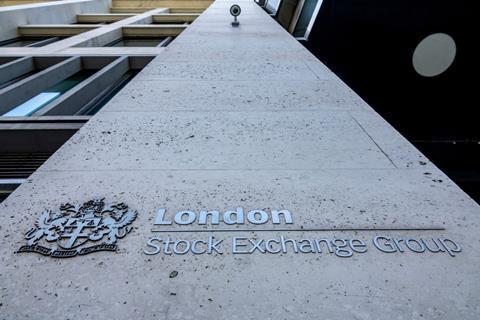Sector under renewed pressure, EY-Parthenon report says
UK-listed construction companies have issued the most profit warnings in the first half of 2025 since the covid-19 pandemic.
Companies in the FTSE Construction and Materials sector issued eight profit warnings during the first half of this year.
This marks a four-fold. year-on-year increase and is the highest number for this period since the start of the pandemic in 2020.

A report by EY-Parthenon reveals listed firms in the sector issued three warnings in Q2, to add to the five recorded in the first quarter.
In 2024, the sector recorded four profit warnings for the entire year. Across all sectors, UK-listed businesses issued 121 profit warnings in the first half.
Construction and Materials was the FTSE sector to issue the third most profit warnings in the first half of the year, behind only FTSE Industrial Support Services – which issued 17 warnings – and FTSE Software and Computer Services, which issued 16.
Tim Vance, EY-Parthenon UK&I turnaround and restructuring partner, said: “The latest data shows that the construction sector, which saw some recovery in 2024, supported by repair and maintenance demand, easing costs and infrastructure investment, is under renewed pressure so far this year.
“Previous gains are being eroded by the return of cost and demand challenges, which are exposing persistent structural weaknesses. Whilst longer-term supply and demand dynamics should support growth in the sector, there are a number of nearer-term challenges that are impacting contractors and the supply chain.”
He added: “Regulatory complexity, particularly from the Building Safety Act, continues to slow approvals and disrupt delivery, while labour shortages and the increase in employer National Insurance Contributions are also squeezing margins.
“Access to bonding and trade credit insurance has been tightening and the sector remains susceptible to shocks. A drop off in demand may ease some of these pressures, but this tends to help main contractors more than subcontractors and suppliers, where financial stress has been concentrated.”























No comments yet